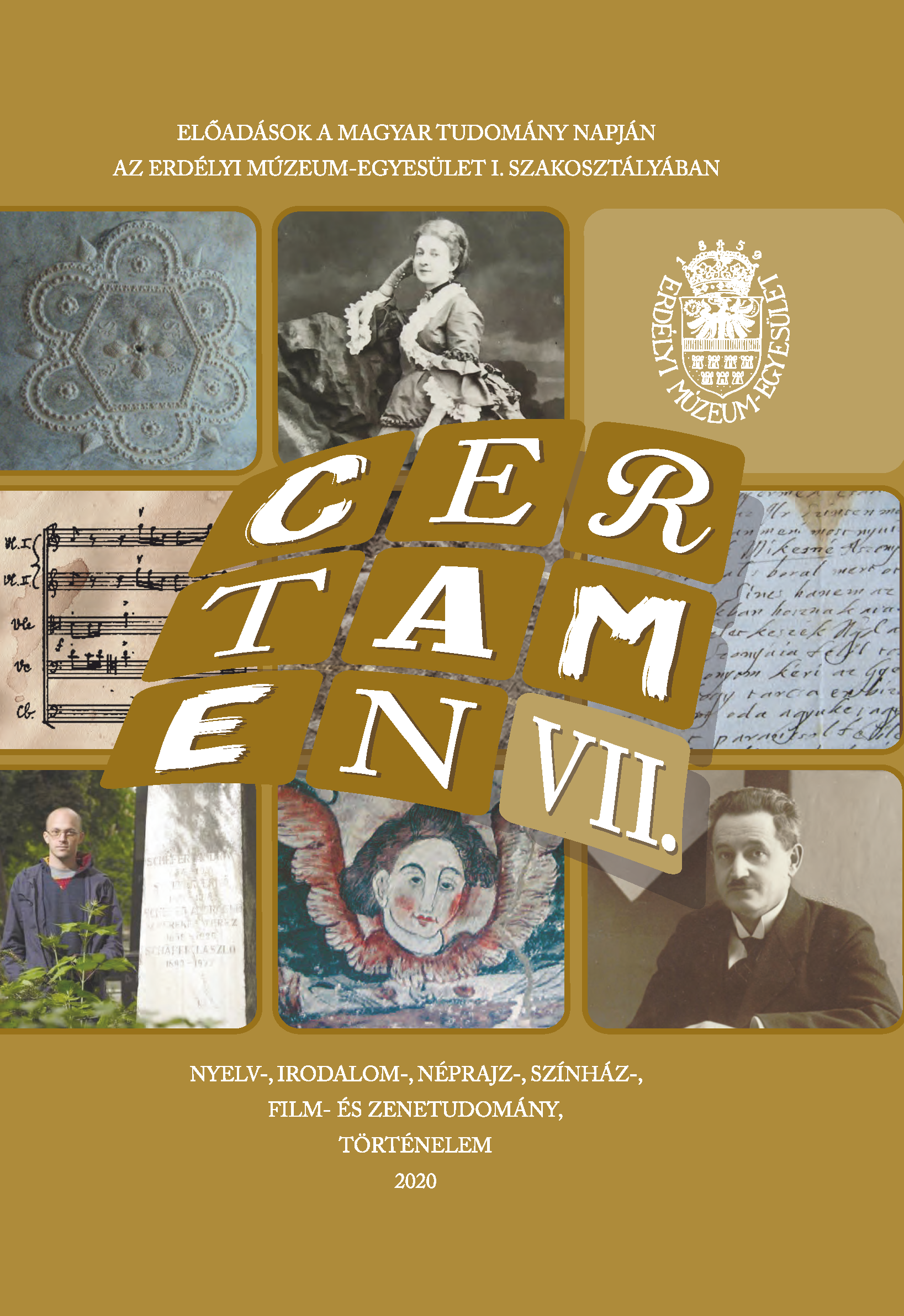Cornel Țăranu és tanítványa, Szegő Péter Kelet varázsában ihletett műveiről
Compositions by Cornel Țăranu and His Disciple Péter Szegő, Created Under the Mirage of the Mysterious Far-East
Author(s): István AngiSubject(s): Music
Published by: Erdélyi Múzeum-Egyesület
Keywords: magic; enchantment; incantation; nomad;
Summary/Abstract: The Nomadic Songs [Cântece nomade] and Saramandji (= to be together) compositions by Cornel Țăranu and the Arcade and MOM by Péter Szegő reflect maybe most eloquently the affinity by which the two composers connect the ancient music of the distant Orient and the wisdom of Hindu thought deeply anchored in the European affective climate. Their works veil the passage from self-seeking to the joy of being together. Certainly: each of them distinctly. Evoking the Ethos conceived in the poetry and music of the nomadic Gypsies on their way from India to us, the Master invigorates in Nomadic Songs (1982) the magic of the ancient archetypes of the indisputable will to live in the seemingly playful battle of death. Then, after a quarter of a century, he instigates our consciousness again in Saramandji (2007) condemning to life the poetry of cohabitation on the waves of the apotheosis of dance. Țăranu refines the epic itself of this condemnation, the genesis of the emotion of confronting life with death in its diachronicity and discontinuity. The Master is „poet”, the disciple a „painter”, each in their music. Szegő plasticizes his evocations. In the mirage of the ancient Tibethan music, reflected through the Hatha Yoga he shows the wisdom of life, youth and health, healing and recovery. Beyond the exhortations and warnings, he paints in „live triptych”, similarly with musical cartoons, the presence on our old continent of the spell of the ancient Orient, the synthesis of the Tibethan melody with the Gregorian chant and the folksong of the Hungarian ancestors in scores like Arcade and MOM. The premiere of the Nomadic Songs in Budapest in 1991 was an impressive example of the artistic collaboration between the Master and the Apprentice. The message of this work was composed on multilingual texts that were translated by Péter Szegő, who, by also conducting the Nomadic Songs, made an essential contribution to the success of the premiere.
Journal: Certamen
- Issue Year: 2020
- Issue No: VII
- Page Range: 301-305
- Page Count: 5
- Language: Hungarian

